Product Detail
Product NameSumo 2+3 Rabbit mAb
Clone No.JJ087-04
Host SpeciesRecombinant Rabbit
Clonality Monoclonal
PurificationProA affinity purified
ApplicationsWB, ICC/IF, IHC
Species ReactivityHu, Ms, Rt
Immunogen Descrecombinant protein
ConjugateUnconjugated
Other NamesHSMT3 antibody MGC117191 antibody OTTHUMP00000115275 antibody OTTHUMP00000115276 antibody OTTHUMP00000115277 antibody Sentrin 2 antibody Small ubiquitin like modifier 2 antibody Small ubiquitin related modifier 2 antibody small ubiquitin-like modifier 3 antibody small ubiquitin-related modifier 3 antibody SMT3 homolog 1 antibody SMT3 homolog 2 antibody SMT3 suppressor of mif two 3 homolog 1 antibody SMT3 suppressor of mif two 3 homolog 2 (S. cerevisiae) antibody SMT3 suppressor of mif two 3 homolog 2 antibody SMT3 suppressor of mif two 3 homolog 3 (S. cerevisiae) antibody SMT3 suppressor of mif two 3 homolog 3 antibody SMT3A antibody SMT3B antibody SMT3H1 antibody SMT3H2 antibody Sumo2 antibody Sumo3 antibody Ubiquitin like protein SMT3A antibody Ubiquitin like protein SMT3B antibody
Accession NoSwiss-Prot#:P55854
Uniprot
P55854
Gene ID
6612;
Calculated MW12 kDa
Formulation1*TBS (pH7.4), 1%BSA, 40%Glycerol. Preservative: 0.05% Sodium Azide.
StorageStore at -20˚C
Application Details
WB: 1:1,000
IHC: 1:50-1:200
ICC: 1:50-1:200
Western blot analysis of Sumo 2+3 on SW480 cells lysates using anti- Sumo 2+3 antibody at 1/1,000 dilution.
Immunohistochemical analysis of paraffin-embedded mouse lung tissue using anti- Sumo 2+3 antibody. Counter stained with hematoxylin.
Immunohistochemical analysis of paraffin-embedded mouse skin tissue using anti- Sumo 2+3 antibody. Counter stained with hematoxylin.
Immunohistochemical analysis of paraffin-embedded human kidney tissue using anti- Sumo 2+3 antibody. Counter stained with hematoxylin.
Immunohistochemical analysis of paraffin-embedded mouse kidney tissue using anti- Sumo 2+3 antibody. Counter stained with hematoxylin.
ICC staining Sumo 2+3 in Hela cells (green). The nuclear counter stain is DAPI (blue). Cells were fixed in paraformaldehyde, permeabilised with 0.25% Triton X100/PBS.
ICC staining Sumo 2+3 in A549 cells (green). The nuclear counter stain is DAPI (blue). Cells were fixed in paraformaldehyde, permeabilised with 0.25% Triton X100/PBS.
ICC staining Sumo 2+3 in RH-35 cells (green). The nuclear counter stain is DAPI (blue). Cells were fixed in paraformaldehyde, permeabilised with 0.25% Triton X100/PBS.
The small ubiquitin-related modifier (SUMO) proteins, which include SUMO-1, SUMO-2 and SUMO-3, belong to the ubiquitin-like protein family. Like ubiquitin, the SUMO proteins are synthesized as precursor proteins that undergo processing before conjugation to target proteins. Also, both utilize the E1, E2, and E3 cascade enzymes for conjugation. However, SUMO and ubiquitin differ with respect to targeting. Ubiquitination predominantly targets proteins for degradation, whereas sumoylation targets proteins to a variety of cellular processing, including nuclear transport, transcriptional regulation, apoptosis and protein stability. The unconjugated SUMO-1, SUMO-2 and SUMO-3 proteins localize to the nuclear membrane, nuclear bodies and cytoplasm, respectively. SUMO-1 utilizes Ubc9 for conjugation to several target proteins, which include IkBa, MDM2, p53, PML and Ran GAP1. SUMO-2 and SUMO-3 contribute to a greater percentage of protein modification than does SUMO-1, and unlike SUMO-1, they can form polymeric chains. In addition, SUMO-3 regulates b-Amyloid generation and may be critical in the onset or progression of Alzheimer's disease.
If you have published an article using product 49224, please notify us so that we can cite your literature.




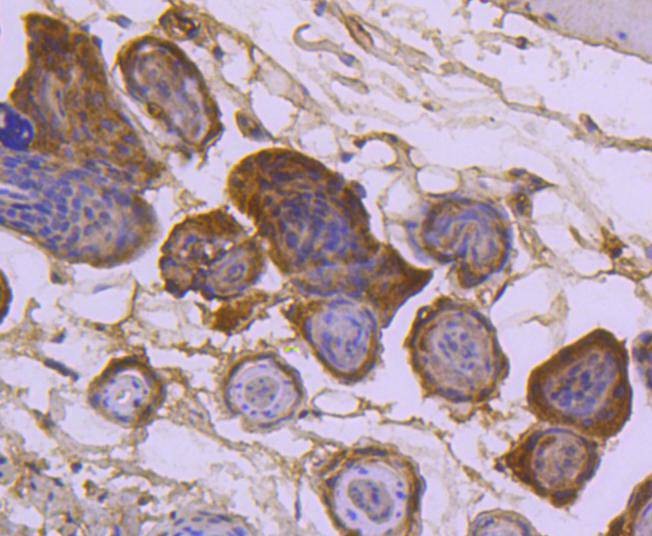
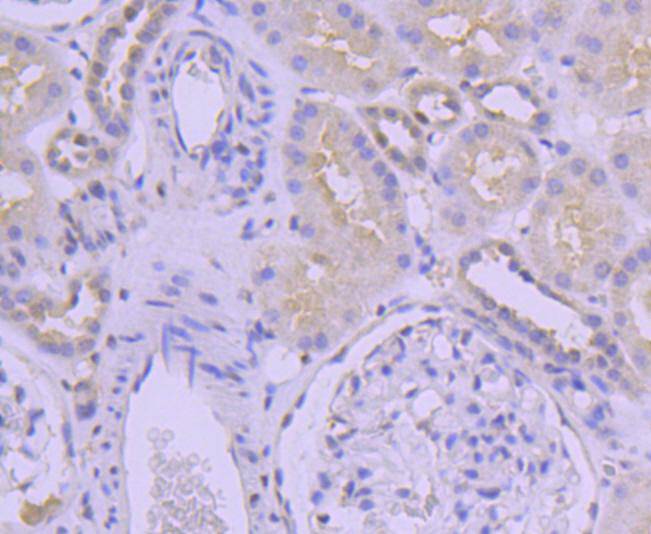
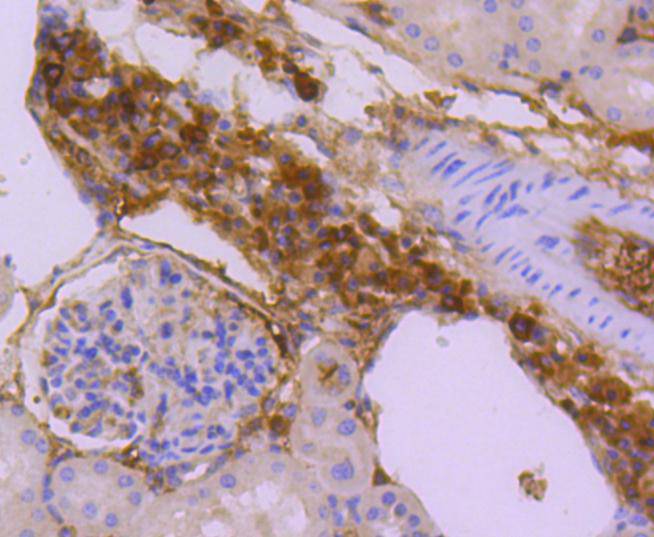
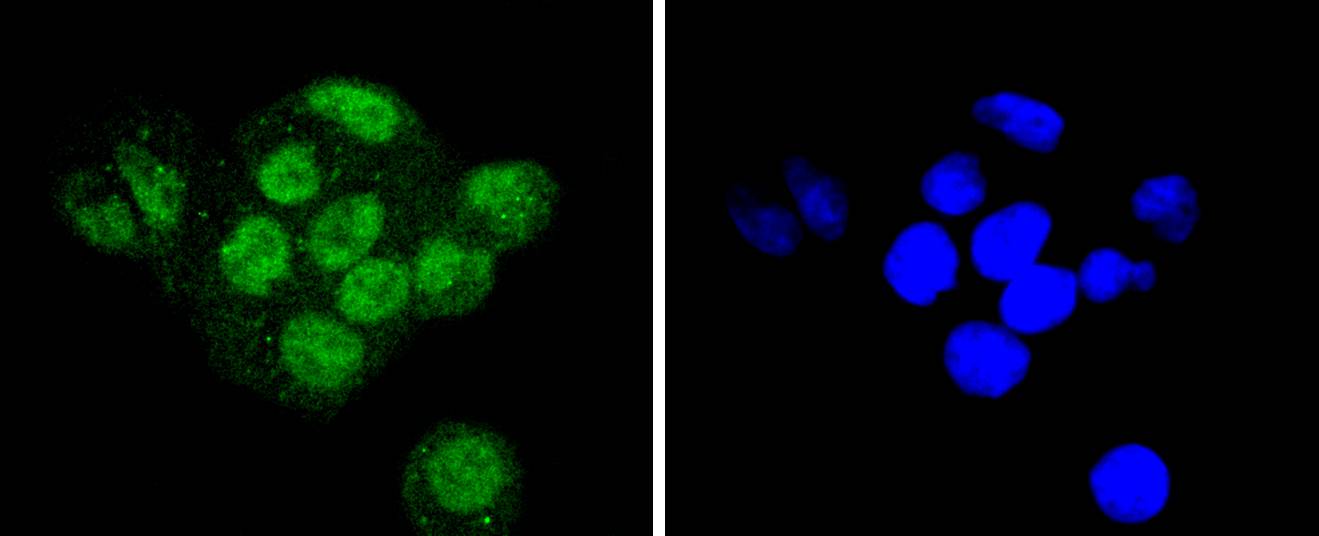
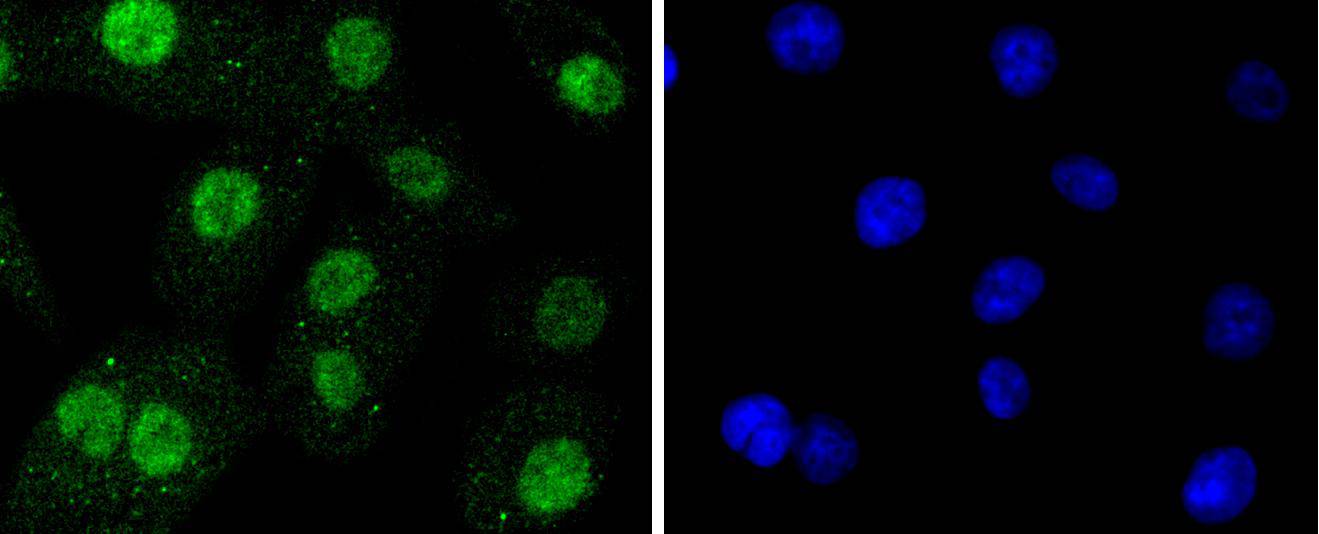
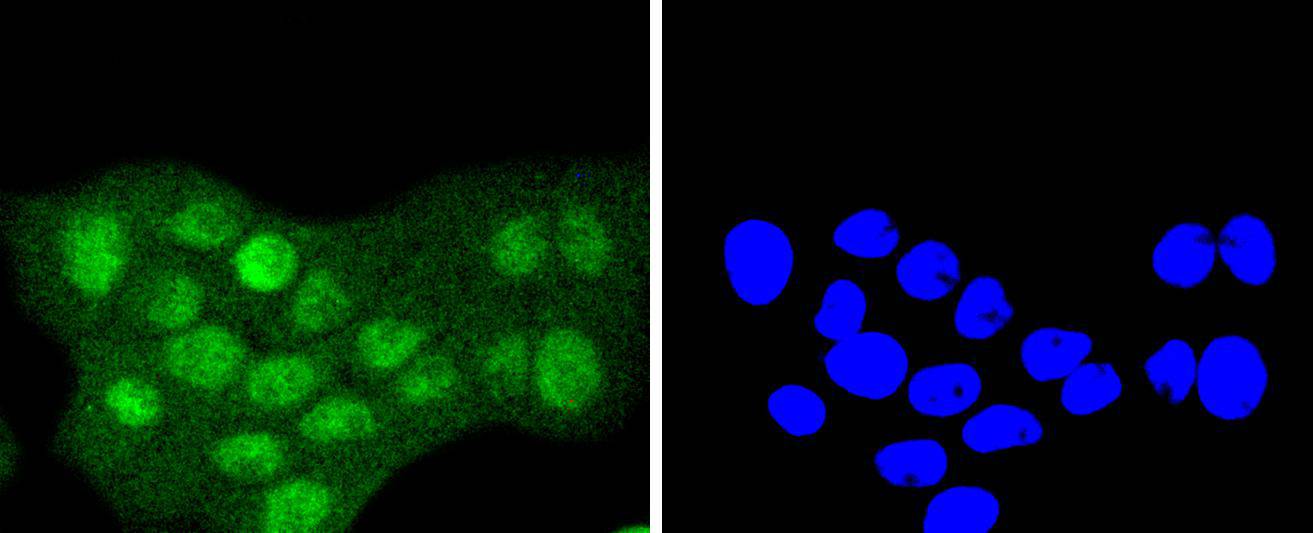
 Yes
Yes



